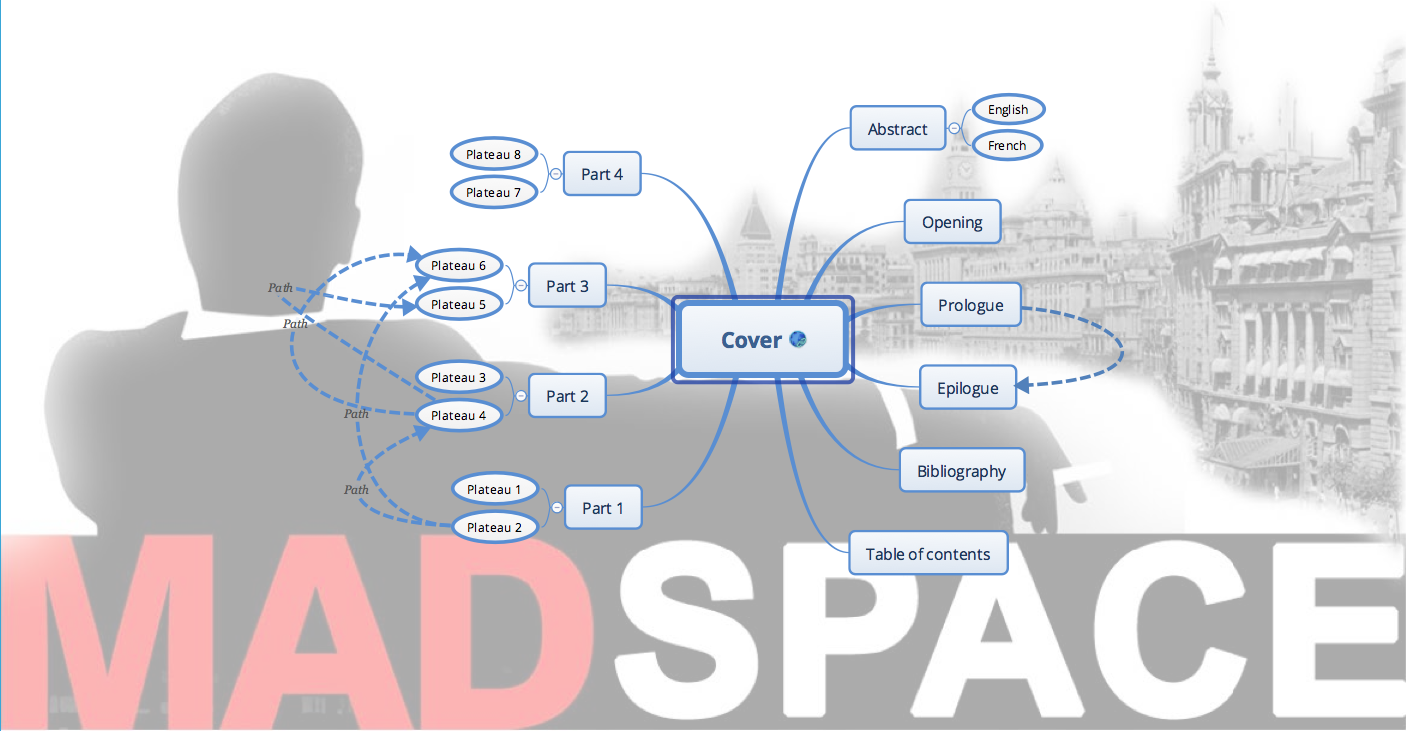"Placing the history of advertising": A spatial history of advertising in modern Shanghai (1905-1949)
The full text of my dissertation is available here.
Abstract: Directly inspired by Philip Ethington's proposal on "placing history", my dissertation offers a spatial approach to the history of advertising in modern Shanghai (1905-1949). Based on various materials (press, archives, photos, sketches, graphs, maps, trees), this spatial trend aims to shift the gaze from mainstream cultural approach (focused on representations visible on press advertisements) to a spatial and material approach of advertising, with a genuine concern for the physical aspects of advertisements. The first part (chapter 1 and 2) is devoted to mapping and measuring the populations and territories of advertising in Shanghai, both in the local press (Chinese newspaper Shenbao and British North-China Daily News), as well as within the city. The second part examines the actors who made and inhabited these spaces, namely the emerging advertising profession (chapter 3) and the actors involved in the production or consumption of advertised products (advertisers/manufacturing companies, brands/products, markets/consumers) (chapter 4). Chapter 5 is devoted to advertising “landscapes” - a term that I used as an operative concept to replace the overused, and often misused, notion of representation - in order to cover every dimension of advertisements (their physical environment at various scales, the copy surface, the discourses they carried). Chapter 6 offers to take advertising spaces as an ideal observatory for examining tensions, conflicts and other forms of relationships surrounding advertising, as well as a "laboratory" for inventing urban modernity – that is, new ways of conceiving and living the city in modern Shanghai. As spatial approaches are often blamed for “freezing” history, my dissertation eventually attempts to trace the circulations and rhythmic patterns between the printed and urban spaces, within and outside Shanghai (chapters 7 and 8). Beyond the "terrain", my dissertation strives to take advantage of the new resources available to historians in the digital age. The digital platform MADspace, which has been especially designed as a digital companion to this PhD project, makes the assumption that the digital ecology offers unexpected opportunities for renewing research questions and methodologies in the field of (Chinese, urban) history.
Keywords: actor, advertising, city, digital history, map, outdoor, press, space, spatial history, urban history, representation, rhythm, Shanghai.
« Placing the history of advertising » : une histoire spatiale de la publicité à Shanghai (1905-1949)
Le texte intégral de ma thèse est disponible ici.
Résumé : Directement inspirée de P. Ethington et son projet de "situer le passé" (placing the past), cette thèse adopte une démarche spatiale pour « rematérialiser », « réincarner » et « repolitiser » l'histoire de la publicité à Shanghai (1905-1949), à la fois dans la presse locale (Shenbao, North China Daily News) et dans les rues de la ville. Refusant tout usage métaphorique de l'espace, cette thèse emprunte aux différentes « sciences de l'espace » pour tourner autour de l'objet publicitaire et l'appréhender dans ses multiples dimensions. Dans la première partie, la démographie et géopolitique sont convoquées pour prendre la mesure des populations et des territoires publicitaires (chapitres 1 et 2). La deuxième partie propose une sociologie des acteurs de la profession naissante (chapitre 3) et de la production/consommation (chapitre 4) afin de démonter la « fabrique » publicitaire. La troisième partie ouvre un observatoire de ses paysages et saisit les espaces publicitaires comme un « laboratoire » de la « modernité » à Shanghai (chapitres 5 et 6). La dernière partie s'efforce de remettre l'histoire spatiale en mouvement en retraçant les circulations et les rythmes publicitaires (chapitres 7 et 8). Au-delà, la démarche spatiale de cette thèse vise à « faire une place » à l'objet publicitaire dans l'historiographie. Nourrie de matériaux divers (presse, archives, photographies, croquis, cartes, statistiques), elle propose une alternative à l'histoire des représentations et apporte un autre éclairage sur l'histoire urbaine. Articulée à une plateforme ad hoc (MADSpace) qui en est le prolongement hypertextuel, cette thèse ouvre une réflexion sur les nouvelles manières de faire et d'écrire l'histoire à l'ère numérique.
Mots-clés : acteur, espace, histoire spatiale, histoire urbaine, numérique, presse, publicité, représentation, rythme, Shanghai, ville.

Last update on Sunday 12 February 2023 (20:45) by C. Armand












